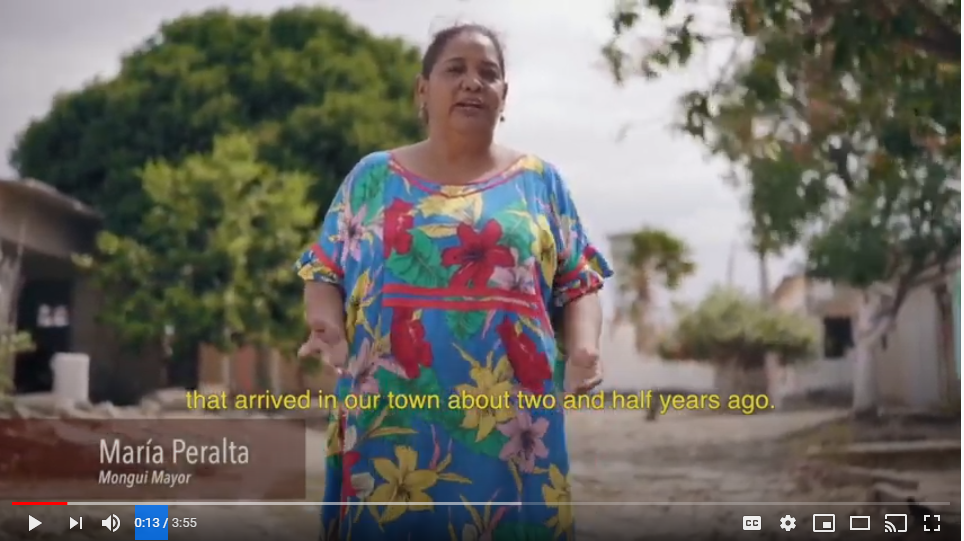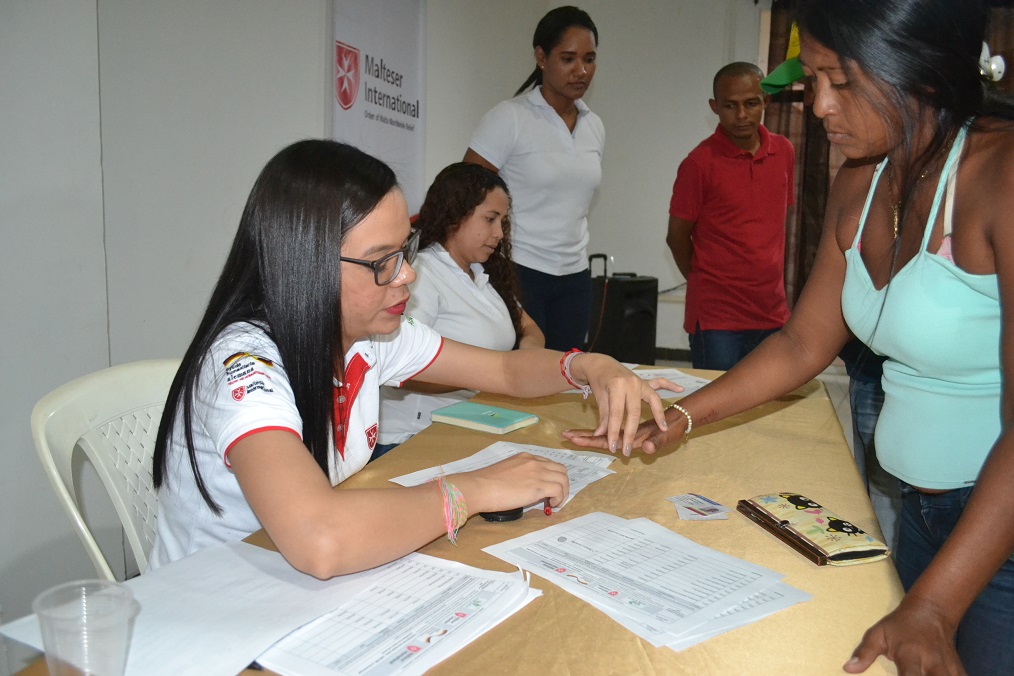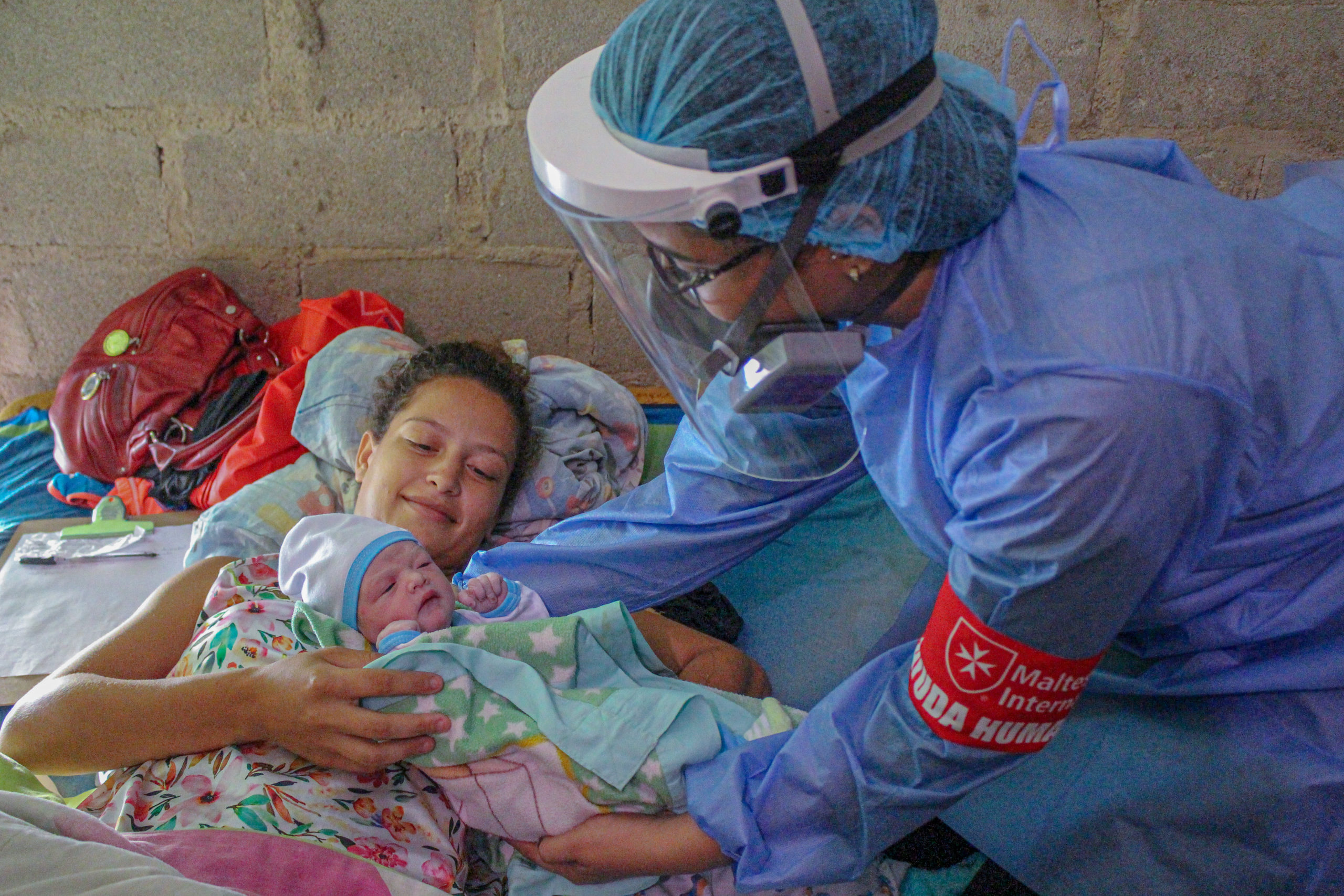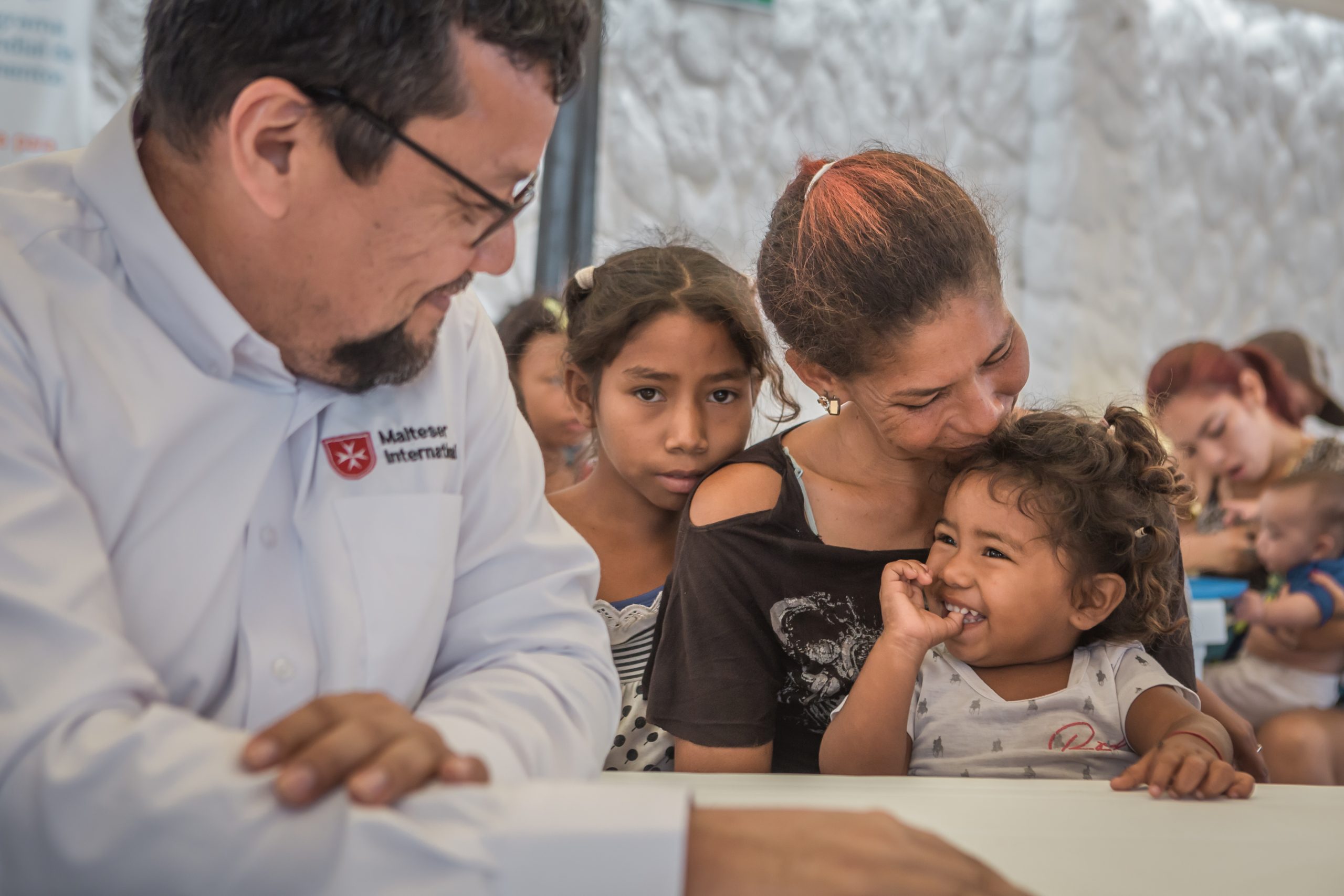South America
Celina: A Doctor Who Found Her Purpose During COVID-19
A doctor by profession, Celina Cotes is a Colombian woman who fled Venezuela two years ago. Her journey back to Colombia two years ago was difficult, she had lived in Venezuela most of her life but lost nearly everything due to Venezuela’s socioeconomic collapse. Settling in the village of Sumain Wayuu in La Guajira, she has been using her professional skills to give back to the community that welcomed her by contributing to COVID-19 mitigation efforts. But this has not been without its own set of challenges.
Entry, or re-entry, into a community is never a guarantee, and as Venezuelan refugees, migrants and Colombian returnees settle in some of Colombia’s poorest regions, social integration, or social cohesion, is key in preventing outbursts of discrimination and xenophobia.
As a health and hygiene promoter, Celina is providing life-saving information and dispelling myths about the virus in her community. She is one of 5 million Venezuelans who have fled the country, and one of nearly 2 million that have chosen to settle in Colombia. She is also part of a majority of migrants, refugees, and returnees that are changing their communities for the better.
Integration into society is key to ensuring that migrants and their host communities can thrive. Migration presents an opportunity, a meeting of worlds where skills, traditions, language and culture are exchanged.
Social cohesion is not built over night, it requires a collaborative effort by all: migrants, host community members, the private sector, and local authorities. Third sector actors such as Malteser International can also contribute to this process by facilitating integration and designing opportunities for cooperation.
In La Guajira, a vast arid peninsula in northeast Colombia where nearly 200,000 migrants and returnees have settled, we are implementing initiatives that foster stronger communal ties and ease the burdensome aspects of migration on host communities.
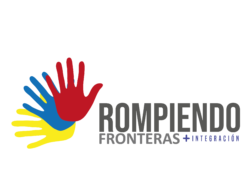
Rompiendo Fronteras, or Breaking Borders – a partnership with local organizations Programas de Paz del Cesar (PDPC) and Asociación de Biólogos del Atlántico (ABIUDEA), promotes the integration of migrants, refugees and returnees into rural communities like Celina’s Sumain Wayuu.
As many vulnerable migrants settle in small communities, often in places where they had family, the need for housing has put significant pressure on locals that opened their doors to cousins, aunts, and distant relatives in need. In Wayuu culture, all Wayuu are members of the same family regardless of whether they were born in Colombia or Venezuela. Open doors are the norm. Through Rompiendo Fronteras, Malteser International has been building much-needed extensions for homes, and building new housing with resilient materials that will withstand the increasingly volatile weather.
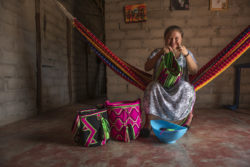
A group of 160 women and girls from Colombia and Venezuela are teaching each other traditional Wayuu crocheting techniques. This region of Colombia is renowned for its handcrafts. Colorful bags and hammocks are popular souvenirs for tourists that flock to nearby beaches. And while many of the new settlers in the small indigenous towns are of Wayuu descent themselves – the majority have lost these ancestral skills. The project is preserving artisanal knowledge while also creating an income-generating opportunity for the participants.
The villages that surround the urban centers of Riohacha and Dibulla reflect the diversity of La Guajira; indigenous, Afro-Colombian, and ethnically- mixed communities coexist. It is also no stranger to large movements of people. It is estimated that over 100,000 people in La Guajira were displaced by Colombia’s decades-long civil conflict; it is a place of deep collective and individual trauma. Migrants, refugees and returnees are settling into villages that experienced violence. Through a team of mental health specialists that organize activities, we are promoting open communication, healing and solidarity.
Celina was one of 60 hygiene and sanitation promoters that were identified to lead the COVID-19 response in their respective communities. This project that introduced new water and sanitation behavior – a partnership with the U.S. Agency for International Development (USAID) – required individuals with Celina’s disposition and commitment. And it allowed her to shine. “My role as a promoter in the community has been the best thing that could have happened to me since I came to this country, it’s the opportunity to provide my services to many people who need it.”
A video produced by Programas de Paz del Cesar(PDPC) showcasing activities to fight xenophobia.
